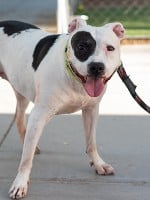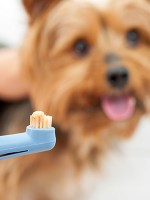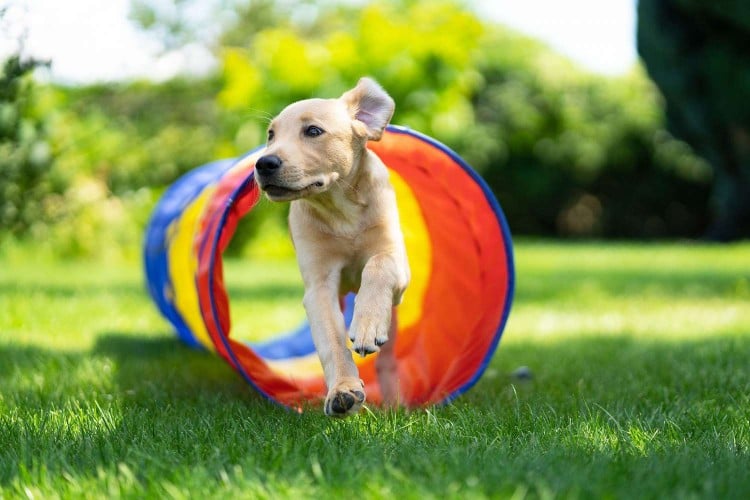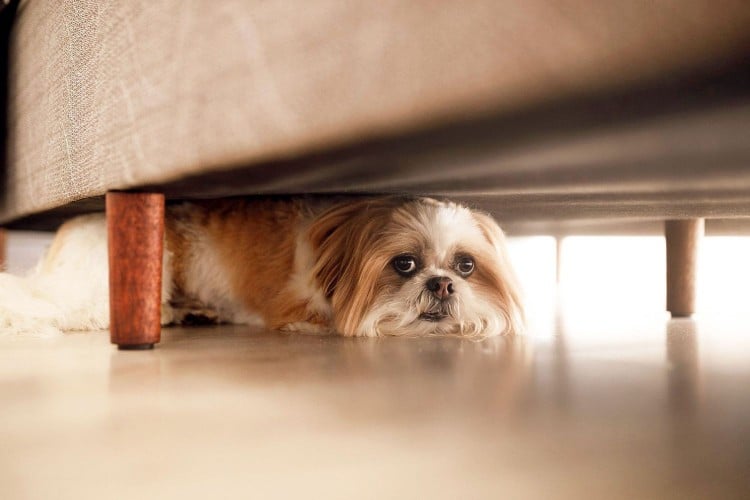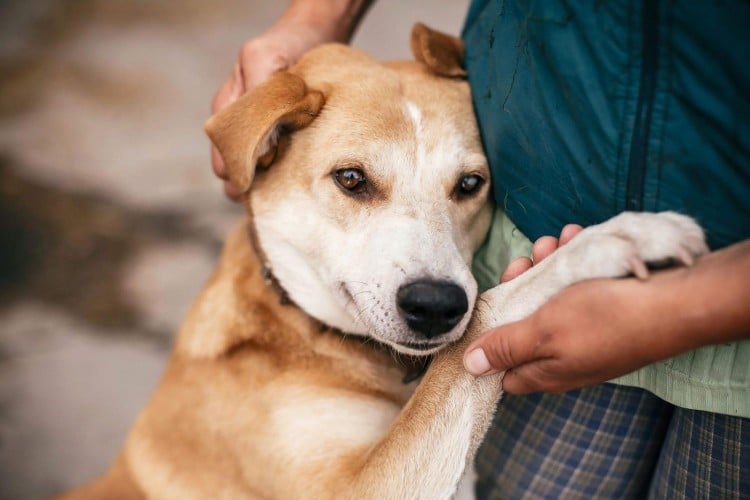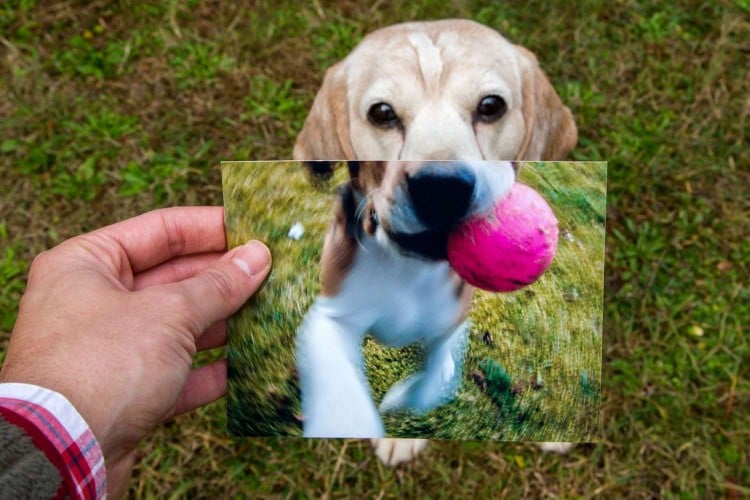We Probably Need to Start Washing Our Dogs' Food Bowls More Often
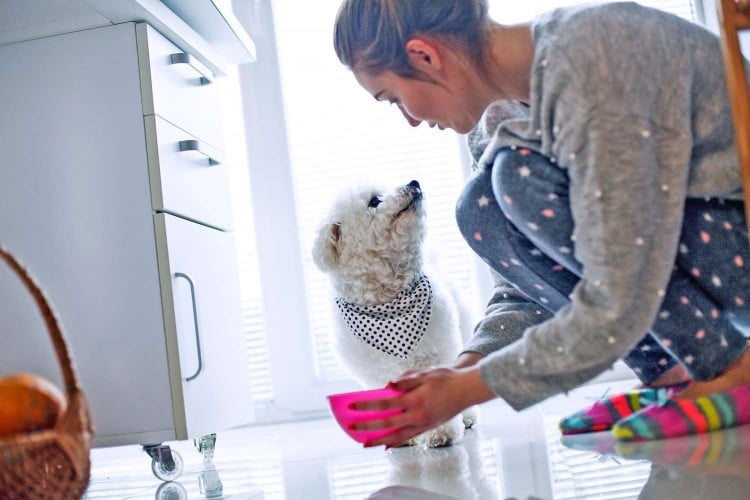
This might not sound valid coming from a crusty WFH goblin, but hear me out: We need to start washing our dogs' food bowls more regularly.
If you don't want to listen to me—which, fair!—you should at least consider what the scientists have to say. In a study published last week, researchers at North Carolina State University found that bowl-washing regimens reduced the presence of microorganisms—like bacteria that potentially cause illnesses—in feeding bowls.
OK, that has a little "well, duh" to it. But one group of study participants was free to clean their dogs' bowls whenever and however they wanted. When those bowls were swabbed at the end of the study, there was no significant difference in the amount of bacteria compared to their initial evaluation.
It's easy to forget—I recently dog-sat for 11 days and didn't think about it once—but cleaning our dogs' bowls is important. We and our pups can both get sick if the food happens to contain bacteria like salmonella or listeria, so a little soap and water every so often (for the bowls and your hands) is better than a sick dog and a stack of veterinary bills.
That's the worst-case scenario, though. There's no need to panic if you haven't been washing bowls regularly, says Jenna Stregowski, RVT and Daily Paws' pet health and behavior editor. Dogs come into contact with bacteria each and every day and are usually just fine.
"Normal hand washing and bowl washing should be enough to keep the 'bad' bugs away," she says.
11 Best Slow Feeder Dog Bowls for Speed Eaters
How Often Should We Wash Our Dogs' Food Bowls?
Stregowski says a few times per week is likely enough for healthy dogs who consume dry food. If your dog is immunocompromised or consumes wet food, you should wash her dishes at each feeding.
The first group of participants in the N.C. State study followed the U.S. Food and Drug Administration's tips for food storage and cleanliness, including:
- Washing hands before serving the food
- Cleaning serving utensils and bowls with soap and hot water after each use
- Safely discarding uneaten food and storing dry food in its original bag
For the second group, dog owners followed the above steps and even more stringent food-handling guidelines from the FDA.
While those two groups were the ones who saw less bacteria in their bowls at the conclusion of the study, it's quite a lot to follow those sets of instructions daily when many of us barely have the time to shower. (Technically I'm included in that, but it's only because LEGO Star Wars just came out.) But if you have time to wash your dogs' dishes each day, go for it.
Our advice: Carve out a few minutes every week or every few days to clean your dogs' bowls thoroughly with hot water and soap. And keep an eye on our recall page to make sure your dogs' foods are always safe to consume.

